
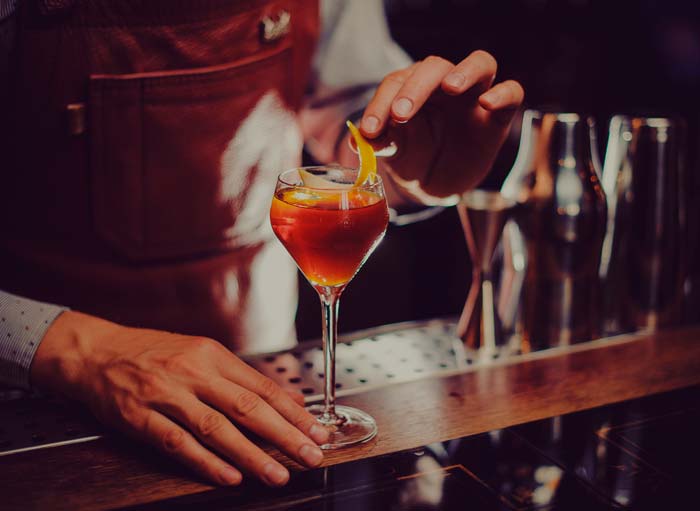


Mixing a little bit of fun with a little bit of insight, we enjoy a second round of Scottish G&T’s with Scotland’s gin makers and brand owners as we let them ask their peers the questions in our ‘Talking Scottish Gin’ Q&A editorial feature.
Picking up where we left off in round one with McLean’s Gin, The Wee Farm Distillery, The Biggar Gin Company and Isle of Skye Distillers, the Wilson brothers passed the baton to Craig Innes, co-founder and distiller at Pixel Spirits by asking…
What are some of the best Gin School experiences you’ve hosted?
Craig Innes replies, “When we first decided to open the gin school, as we were building the distillery, we didn’t know if it would be the success story that it has become for our tiny Highland operation. Originally we had planned to open it in April 2018, about 6 months after we opened the distillery, but we got flooded with enquiries so setup sooner, with 8 of my mum’s friends playing guinea pigs for the first class. As many of you know, Lochaber is named the Outdoor Capital of The UK (TM) but it does tend to rain and so indoor activities provide a much welcomed haven from the weather. Now almost two and a half years later, we have hosted some amazing gin schools including now our virtual experiences, as a result of the lockdown.
“We have introduced individuals, couples, friends, families and businesses to the interesting and unusual world of making small batch gin and have picked up a lot of friends along the way. One group in particular springs to mind. One night, Noru and I were out in Glasgow after various deliveries and Noru, originally from Finland, stumbled across a pub night request from a member of the Scottish Finnish Society. Little did we know it had only accidentally been posted publicly so we went along, crashing their private birthday celebration. It turned out that 2 of the ladies worked for an amazing company who produce sustainable alternatives to plastic packaging using seaweed. A friendship was born and soon after they brought their team of 16 for a company away day making small batch gins in groups, needless to say all gins distilled that day featured locally foraged Scottish seaweed, but one group in particular wanted to really push the seaweed theme despite my advice about quantities. I have to hand it to them, they demolished the bottle, but perhaps not one to be recreated.
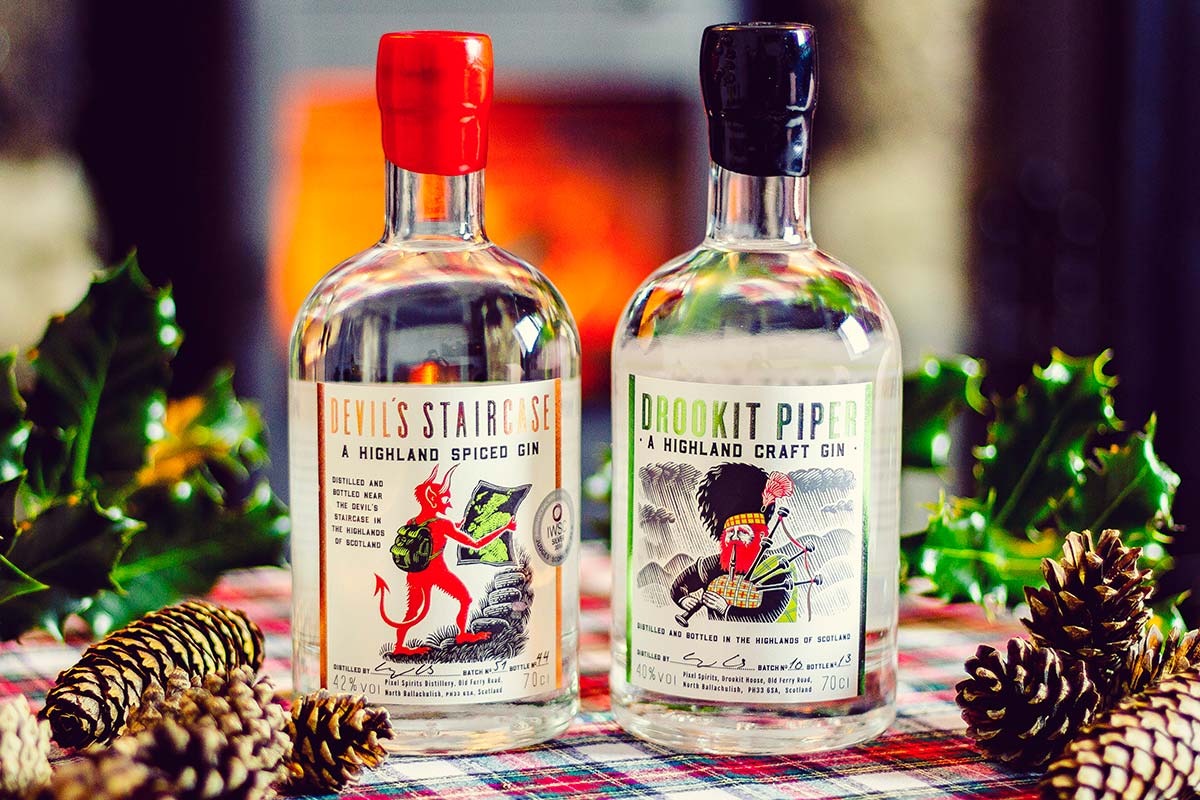
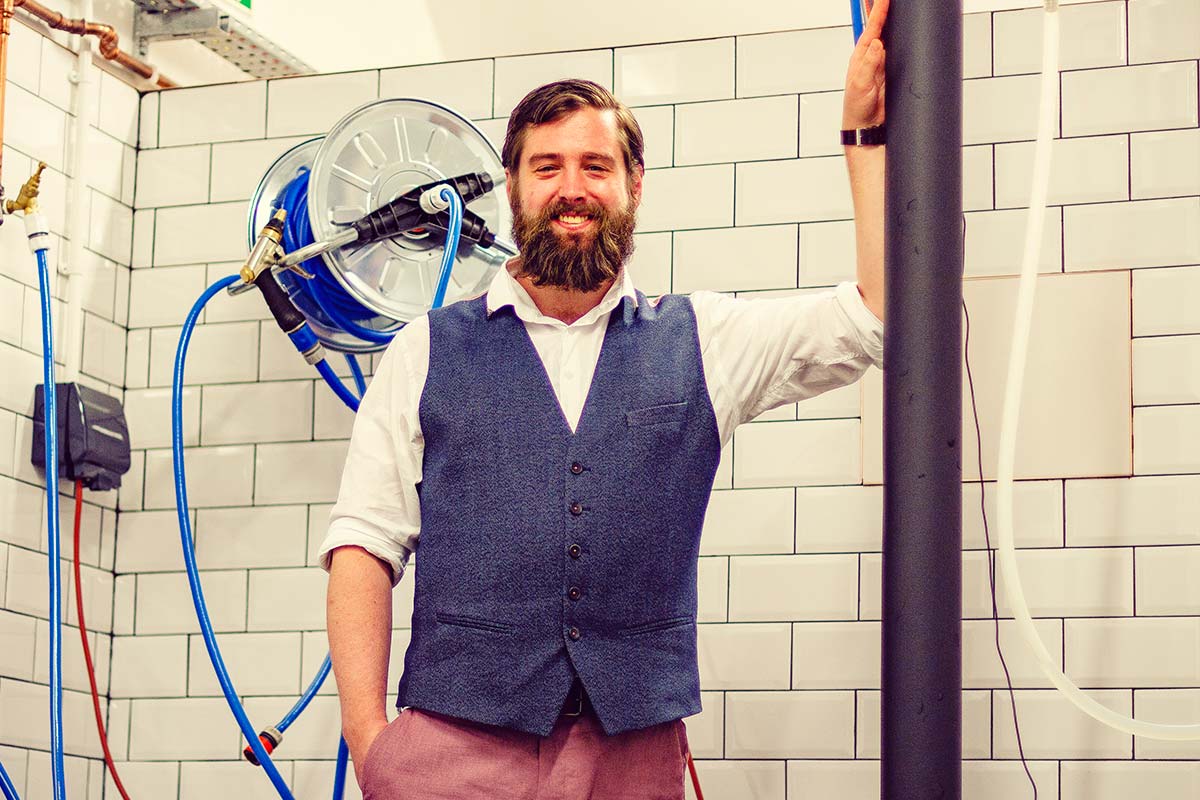
“Every day at the gin school we see creative individuals and guide them, working with hundreds of different botanicals to distil something amazing for them, to suit their own style and palate. Would all the recipes appeal to me, perhaps not, though I’d give most a go, but we all have our go-to styles and if we can help people create something special for them, then that is the joy of being an experience provider!
“Over the last few weeks, taking the gin school virtual has been amazing. As a private experience, it has been a delight really getting to spend one to one time assisting people create their own unique recipe and we owe a special thank you to Ally Hardy of Craft 56 for helping us to widen our market to most of Europe by fulfilling the delivery side of our international orders!”
Pixel Spirits’ Craig Innes now asks Beinn an Tuirc Distillers, makers of Kintyre Gin…
Distilling in such a rural and remote location, what are some of the biggest challenges?
Co-founder and Distiller Niall Macalister Hall replies, “There are huge disadvantages and advantages in distilling here. Obviously we are biased, but we think where we live, and work, is the nicest place on earth. Yes we are remote, however the scenery, lifestyle and yes, even the weather, is fantastic! The main drawbacks are mainly logistical in nature. While Kintyre is not an island, it can often be treated as one, so that means delivery costs are more than you would expect to pay in the Central Belt and it takes longer to receive goods. The same goes with essential trades – you could be waiting for some time to get a plumber or an electrician here, especially in an emergency situation.
“Recruitment can also be tough, however to date we have managed to assemble a really good team, mainly from the local area or with connections to the local area. As we grow, it may become more challenging to recruit workers with a specific skill. We are conscious that we all must do our bit to create employment opportunities in the local area, and to stop the de-population that is taking place throughout Argyll at the moment. I do feel the tide is slowly turning though, and this must be a positive for everyone in the area.
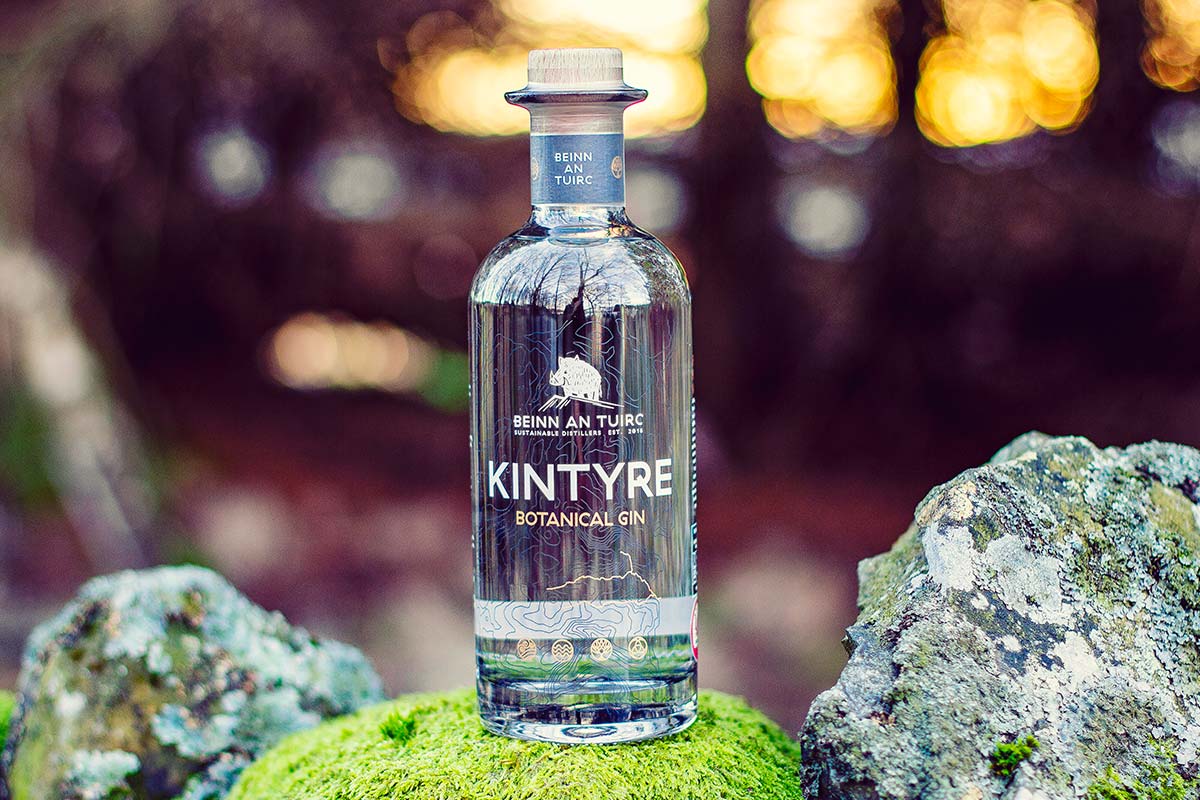
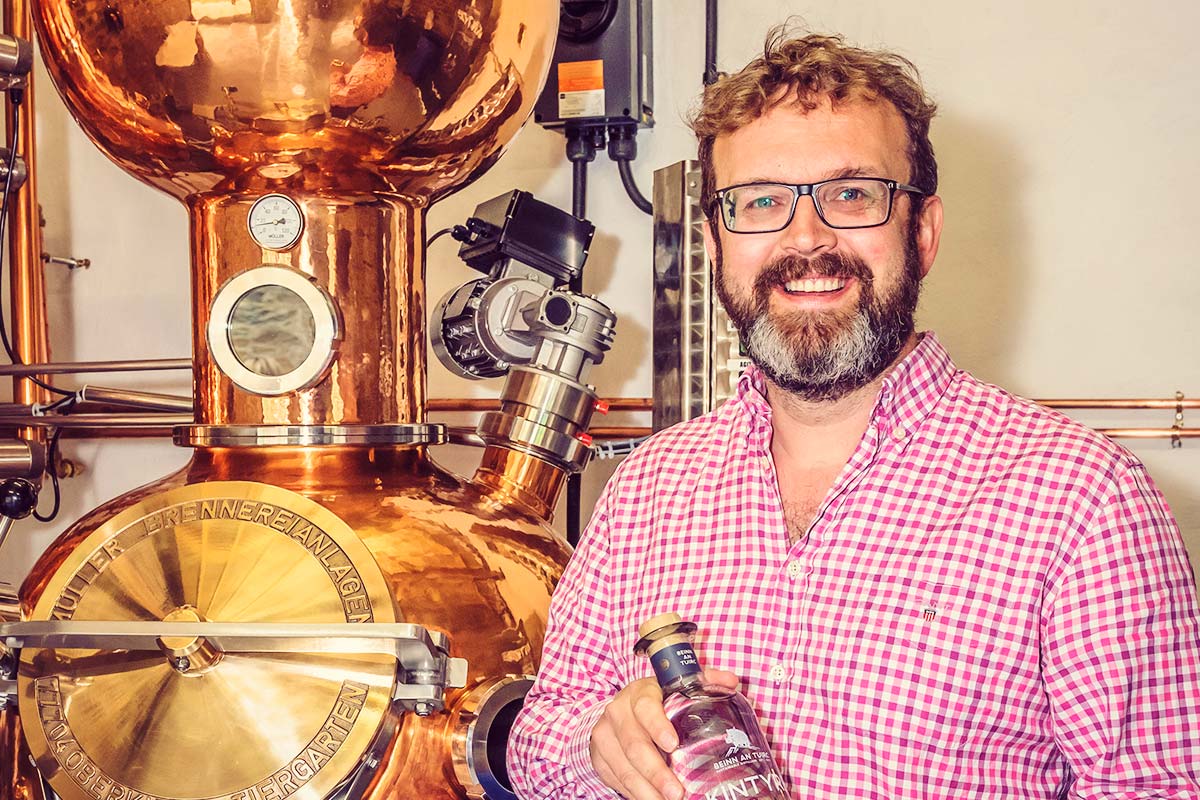
“With the distillery located on a rural estate, we have to rely on some private services such as water – this means that every summer we are watching the skies to see if it will rain, as we can often run dry, even in Kintyre! Just remember, today’s rain is tomorrow’s gin!
“However, despite all the drawbacks, we do think the positives far outweigh the negatives. Our location is not only part of our story, but I guess you can say it forms a huge part of our DNA. Without it we would struggle to generate our own power. Or plant trees in our own backyard to off-set against any carbon produced. We wouldn’t have it any other way, and it helps to make Kintyre Gin the unique product it is!”
Beinn an Tuirc Distillers’ Niall Macalister Hall now asks neighbours Tyree Gin…
How do the two of you manage to find enough time to run the business, make gin and at the same time touring and playing with your band Trail West?
Co-founder and Distiller Ian Smith (below on the right) responds, “Believe it or not, most of the year both ventures work quite well together. Our typical working week consists of travelling home to Tiree on a Monday morning after a weekend of gigs with Trail West. We then spend the middle of the week making gin, dispatching orders and keeping up with all things Tyree Gin before we leave the island on a Thursday evening or Friday morning for the next weekend’s gigs.
“We did struggle last summer when Tiree was very busy. Although we don’t yet have a shop on site, the local shops in Tiree sold a lot of our gin alongside a number of large orders for music festivals throughout the country and unfortunately we struggled to keep up with demand and it was often sold out. The summer is also Trail West’s busiest period and between July and August we were all over the UK, from Sark in the Channel Islands to Harris in the Western Isles.
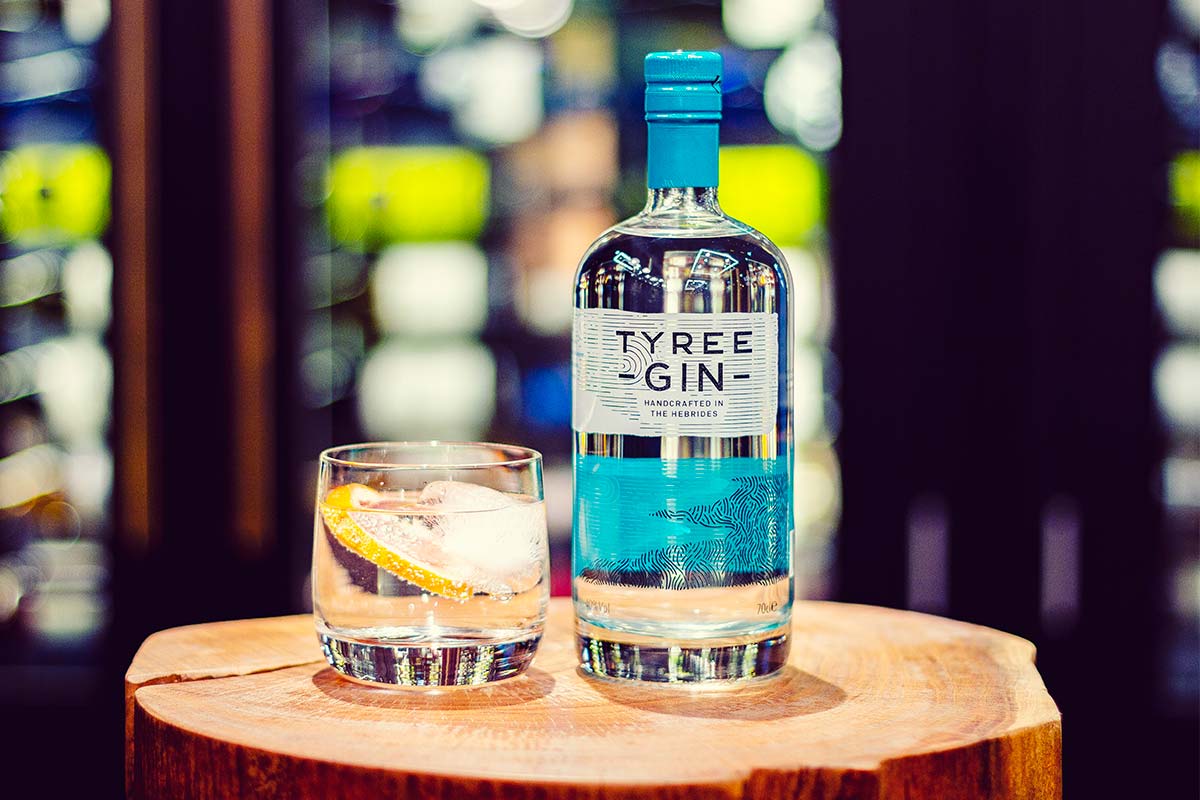
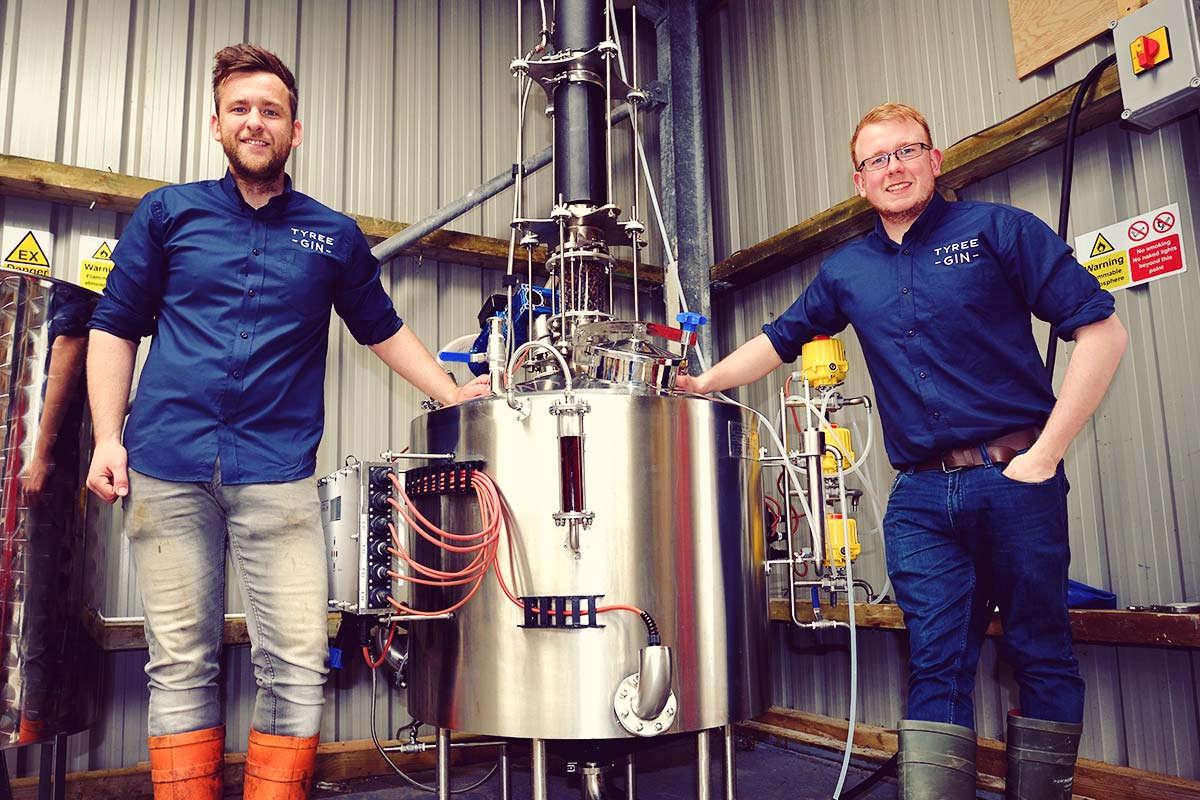
“We received our licence for a small shop on site at the distillery this year and we had a plan of action on how we would work this alongside Trail West but almost all of our gigs have been cancelled until August at the earliest and we don’t know when we’ll be able to open the distillery with current restrictions on travel to the island.
“2020 was a big year for Trail West too as it is our 10th Anniversary. We’re hoping our first headline show in the Barrowlands in Glasgow in September still goes ahead so we’re keeping all of our fingers and toes crossed! The plan is to have a quieter year with the band next year and things should be more manageable then… Hopefully!”
Being neighbours and having played with Trail West at the Bruichladdich Distillery on a few occasions, Tyree Gin’s Ian Smith now asks The Botanist Gin…
The still used to produce The Botanist Gin is called “Ugly Betty”. How did this come about?
Islay-based Communications Manager Katie Smith replies, “The origin story surrounding The Botanist, though it happened a short ten years ago, has become the stuff of myth at Bruichladdich. Our still is one of the last remaining original Lomond stills, salvaged from Inverleven distillery in Dumbarton, when it ceased production. Resembling an “upside-down dustbin”, the still was dragged through the Clyde Estuary on a barge, and eventually made its way to Bruichladdich distillery. It was placed in the still house one day when a wall was taken out to carry out essential maintenance on the whisky stills already housed there.
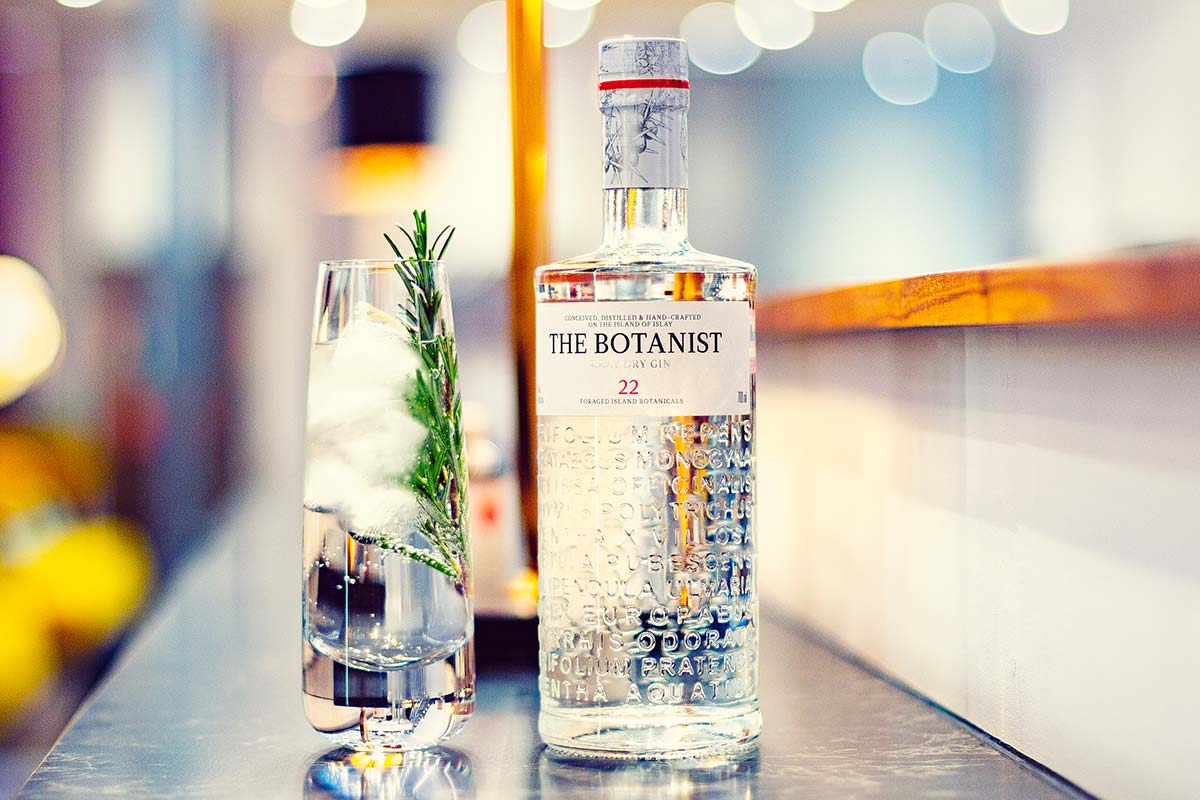
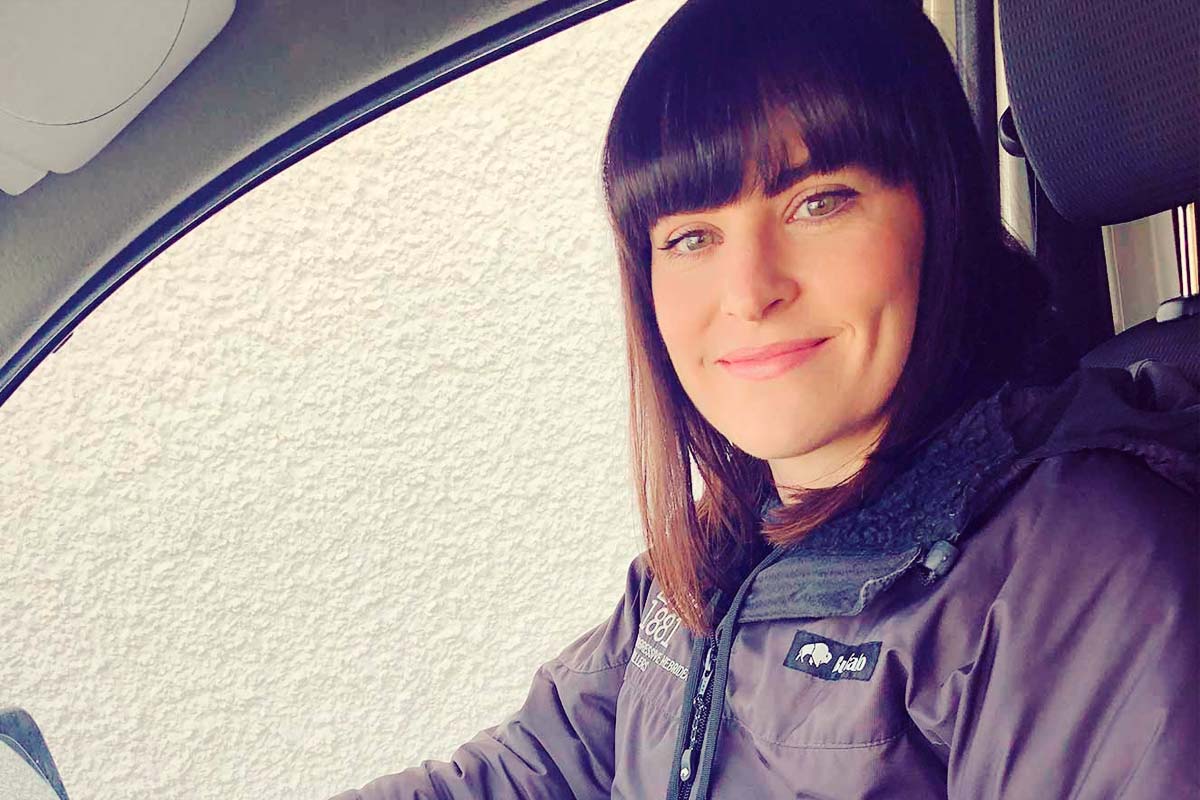
“She was nicknamed by Bruichladdich’s former Master Distiller Jim McEwan for her appearance – sat amongst the other, long necked pot stills that Bruichladdich use to created their single malt whiskies, she cut a rather squat figure! But we love her all the more for that.”
Passing the baton to another neighbouring island, Jura, The Botanist Gin’s Katie wants to ask something of Lussa Gin… stay tuned to find out the question and answer in the next round of Talking Scottish Gin!
Read the first round of Talking Scottish Gin with McLean’s Gin, The Wee Farm Distillery, The Biggar Gin Company and Isle of Skye Distillers here.

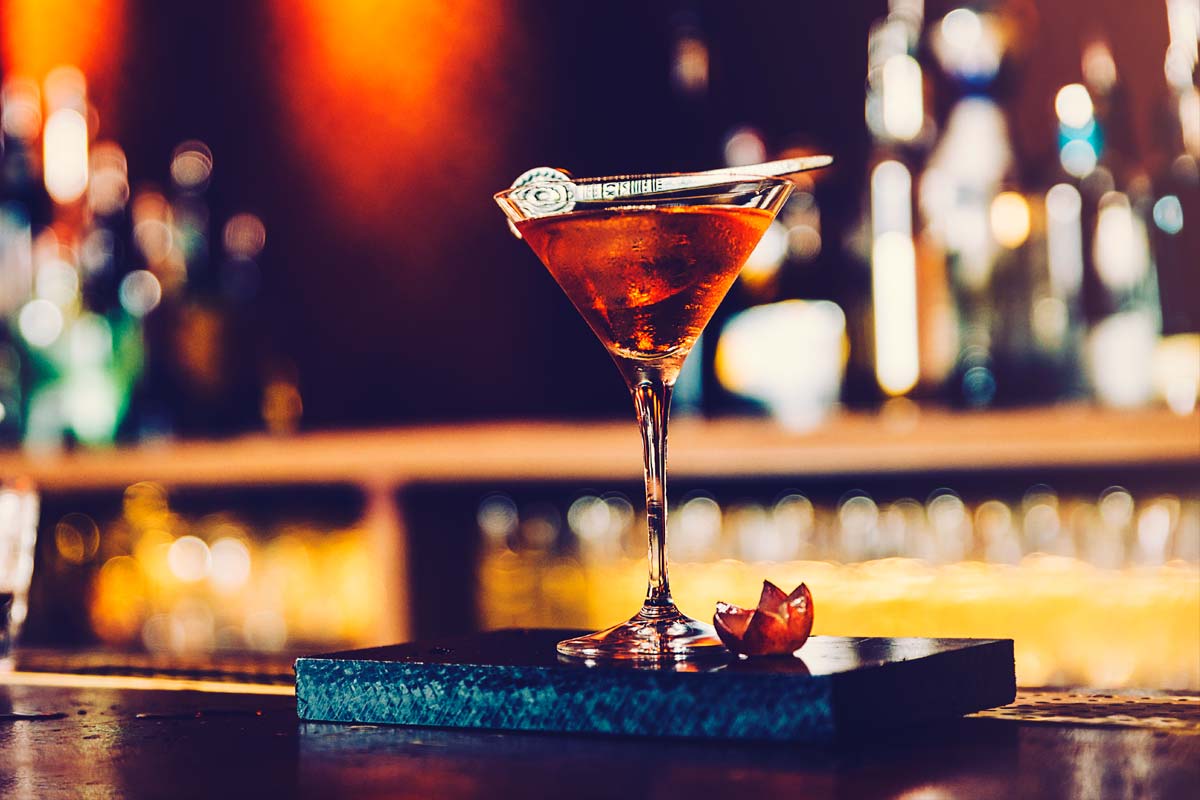
You can learn more about the many great Scottish Gins by visiting the links below.